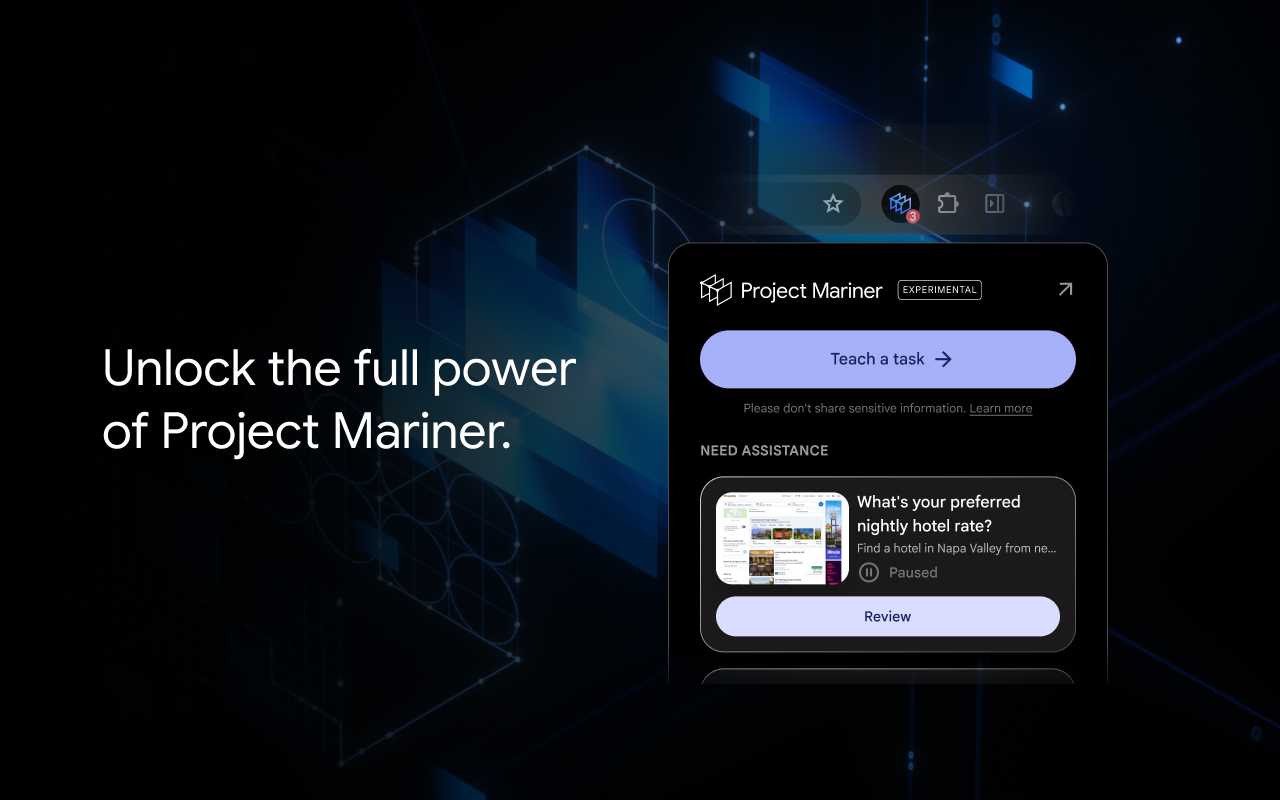Project Mariner is a prototype project launched by Deepmind for the future AI automated workflow, which controls multiple intelligent bodies in natural languages while working in virtual browsers. ** Core objective** The system is designed to allow users to quickly deploy one or more AI smart agents through natural language instructions and simulate humans to perform complex tasks in the browser environment. Mariner’s name comes from the name of the navigator, the symbol of AI’s ability to navigate and perform autonomously in the message of the ocean. ** Mandate type**
-
Information retrieval (search, match, filter)
-
Interactive web pages (clicks, forms, scrolling, copying, etc.)
-
Data entry and integration (e.g., extracting structured information from multiple pages)
-
Multitask schedule (and send multiple windows or tabs)
System capabilities and working methods
1. Language-driven control
The user describes the task in a natural language, and the system converts it into an implementable plan. For example:
“Please help me find the three university websites offering the AI course in 2023 and collate the course names, tuition fees and web links.”
The system does not require step-by-step user guidance, but rather an autonomous understanding of the mission structure and the planning of the implementation process.

-
All task operations are carried out in virtual browsers by simulation of real user behaviour;
-
Smart bodies can perform DOM operations such as clicking, input, drag, navigation, submission of forms, etc.;
-
The browser runs in the sandbox and supports the task segregation and distribution.
3. ** Multitask parallel dispatch**
Project Mariner can ** perform multiple sub-tasks in parallel** (multi-agent concerned example):
-
Each task runs in the case of an independent browser;
-
Control modules to coordinate task implementation sequences, data sharing and progress tracking;
-
May dynamically generate, terminate or adjust the conduct of the agent of the mission.
##4 4. Enhanced learning and task feedback mechanisms
-
The system supports learning from user feedback.
-
Introduction of incentive signals and reward mechanisms to optimize mission implementation strategies.
Further information: https://deepmind.google/models/project-mariner
